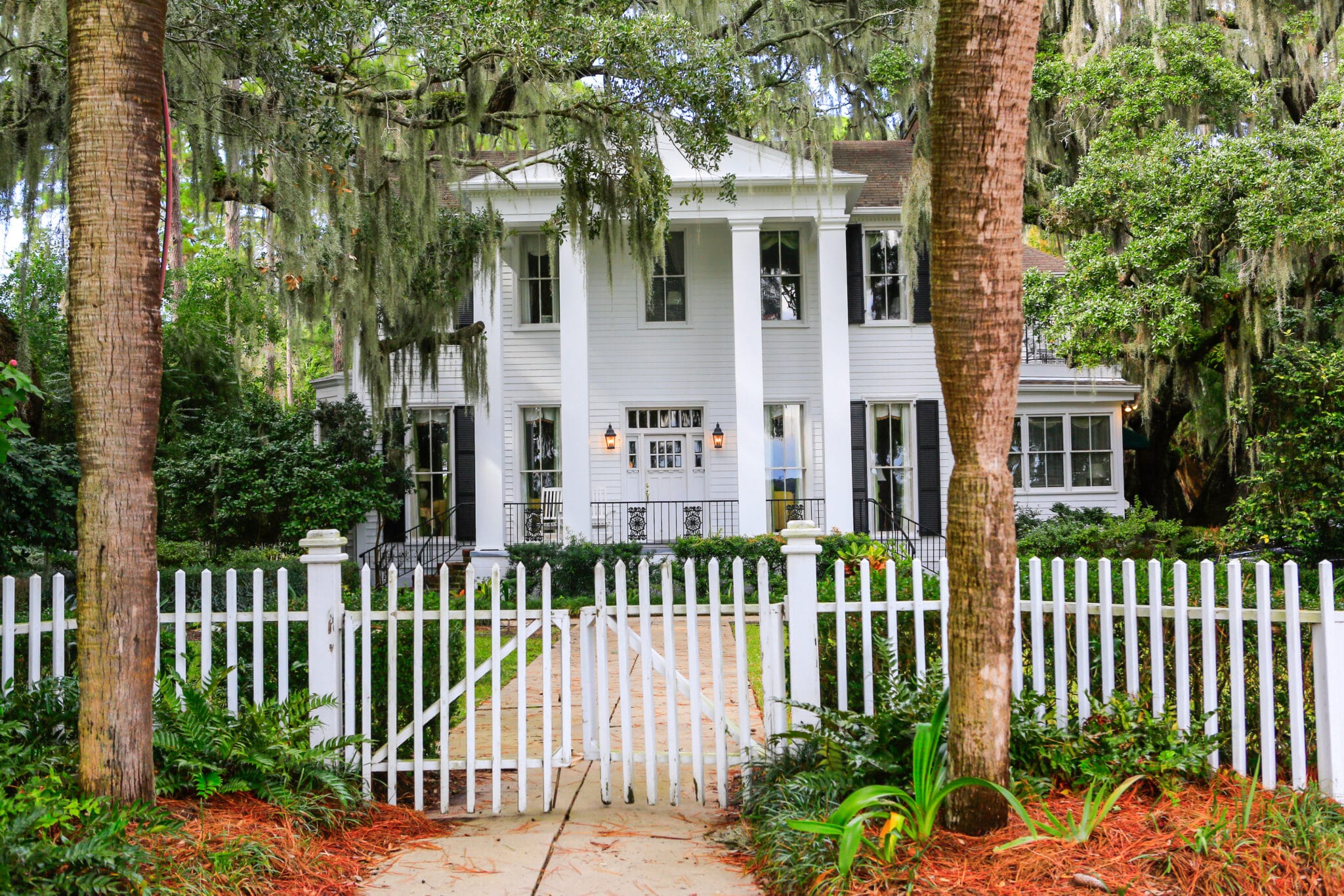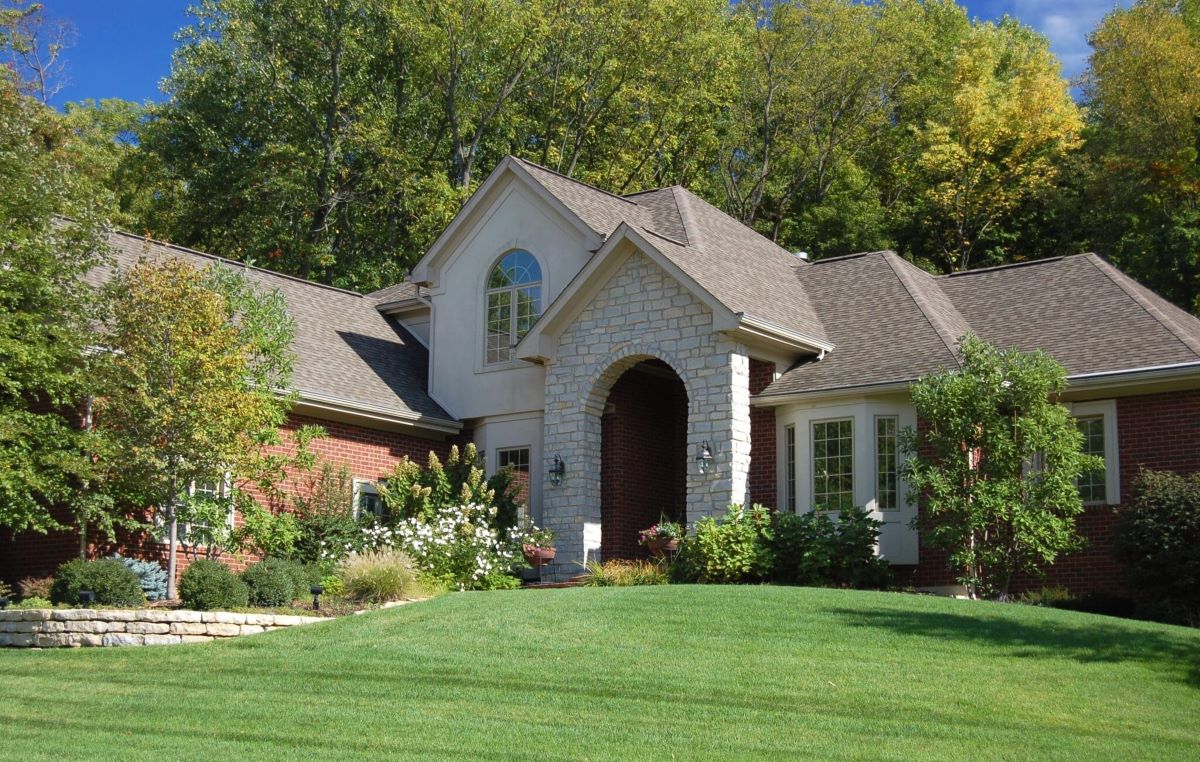Home>Finance>How Much Is Homeowners Insurance In Massachusetts?


Finance
How Much Is Homeowners Insurance In Massachusetts?
Published: November 19, 2023
Discover how much homeowners insurance costs in Massachusetts and secure your finances with the right coverage for your home.
(Many of the links in this article redirect to a specific reviewed product. Your purchase of these products through affiliate links helps to generate commission for LiveWell, at no extra cost. Learn more)
Table of Contents
Introduction
When it comes to protecting your most valuable asset, your home, having homeowners insurance is a crucial step in ensuring peace of mind. In Massachusetts, where natural disasters like severe storms and harsh winters are not uncommon, having adequate coverage is even more important.
Homeowners insurance not only covers your home in the event of damage or destruction but also provides liability protection in case someone is injured on your property. But how much does homeowners insurance cost in Massachusetts?
There are several factors that influence the cost of homeowners insurance in the state. These include the location of your home, its age, the value of your home and personal belongings, your credit score, and even the presence of certain features such as a swimming pool or a fire sprinkler system.
Understanding these factors and their impact on insurance premiums can help you make informed decisions when purchasing homeowners insurance. Additionally, being aware of the coverage options and ways to save on insurance costs can ensure that you get the best policy at an affordable price.
In this article, we will delve into the factors that influence homeowners insurance rates in Massachusetts, explore the average cost of homeowners insurance in the state, discuss coverage options, and provide tips for saving on insurance premiums. Whether you’re a new homeowner or looking to switch insurance providers, this guide will serve as a valuable resource in navigating the world of homeowners insurance in Massachusetts.
Factors that Influence Homeowners Insurance Rates in Massachusetts
When you’re shopping for homeowners insurance in Massachusetts, it’s important to understand the factors that can influence your insurance rates. Insurance companies take several variables into account when determining the cost of your policy. Here are some key factors that can impact your homeowners insurance rates in Massachusetts:
- Location: The location of your home plays a significant role in determining insurance rates. If you live in an area prone to natural disasters, such as along the coast or in a flood zone, your insurance premiums may be higher. This is because the risk of damage to your property increases in these areas.
- Home Value and Construction: The value of your home and the materials used in its construction are important factors. Generally, homes made with fire-resistant materials, such as brick or stone, may have lower insurance rates than those made with wood. The replacement cost of your home is also considered, including factors like square footage, number of rooms, and special features.
- Personal Property Value: In addition to insuring your home, homeowners insurance also covers your personal belongings. The total value of your personal property will affect your rates. If you have expensive items like jewelry or artwork, you may need additional coverage.
- Deductible: The deductible is the amount you pay out of pocket before your insurance coverage kicks in. Typically, choosing a higher deductible will lower your insurance premium, but it also means you’ll have to pay more if you need to make a claim.
- Credit Score: Insurance companies often consider your credit score when determining your rates. Studies have shown a correlation between credit scores and insurance claims. Maintaining a good credit score can help lower your insurance premiums.
- Claims History: Your claims history can impact your rates. If you have a history of filing multiple claims, insurance companies may view you as a higher risk and charge higher premiums.
- Home Security: Having security measures in place, such as an alarm system or deadbolt locks, can help lower your insurance rates. These measures reduce the risk of theft or vandalism.
It’s important to note that each insurance company has its own unique rating system and weighting for these factors. Therefore, it’s beneficial to shop around and compare quotes from multiple insurance providers to find the best coverage at the most competitive rates.
Understanding the factors that influence homeowners insurance rates in Massachusetts can help you make informed decisions when purchasing a policy. By considering these factors and finding the right balance between coverage and cost, you can ensure that you are adequately protected without overpaying.
Average Cost of Homeowners Insurance in Massachusetts
When it comes to homeowners insurance in Massachusetts, the cost can vary depending on several factors. The average annual premium for homeowners insurance in the state is around $1,500, but this can fluctuate based on the location, value of the home, coverage limits, and other individual factors.
One of the primary factors influencing the cost of homeowners insurance in Massachusetts is the location of your home. Areas that are more prone to natural disasters, such as coastal regions, may have higher premiums due to the increased risk of damage from hurricanes or flooding.
The age and construction of your home can also impact your insurance rates. Older homes may have higher premiums as they may require more maintenance and repairs. Additionally, certain features like a swimming pool or wooden deck can increase your premiums due to the increased liability risk they present.
Furthermore, the value of your home and the amount of coverage you choose will affect the cost of your homeowners insurance. A higher coverage limit will result in a higher premium. It’s important to accurately assess the value of your home and belongings to ensure you have adequate coverage without overpaying for insurance.
Your deductible, the amount you’re responsible for paying in the event of a claim, can also impact your insurance rates. Choosing a higher deductible can lower your premium, but it does mean you will have to pay more out of pocket if you need to make a claim.
It’s worth noting that homeowners insurance rates in Massachusetts have been increasing in recent years due to various factors, including the increase in severe weather events, rising construction costs, and the cost of claims. It’s recommended to review your homeowners insurance policy annually and compare quotes from different insurance providers to ensure you’re getting the best coverage at the most competitive rate.
Remember, the average cost of homeowners insurance in Massachusetts serves as a general guideline, and individual premiums will vary based on specific circumstances. It’s essential to work with a reputable insurance provider who can assess your unique needs and provide you with a customized homeowners insurance policy that offers the right level of coverage at a price that fits your budget.
Coverage Options for Homeowners Insurance in Massachusetts
When it comes to homeowners insurance in Massachusetts, it’s important to understand the different coverage options available to protect your home and belongings. While policies may vary among insurance providers, here are some common coverage options to consider:
1. Dwelling Coverage: This coverage protects the structure of your home from covered perils, such as fire, windstorms, or vandalism. It typically includes the main dwelling, attached structures like a garage, and built-in appliances.
2. Personal Property Coverage: This coverage helps replace or repair your personal belongings if they are damaged or stolen. It can include furniture, electronics, clothing, and more. It’s important to review your policy to ensure it provides adequate coverage for your valuable possessions.
3. Liability Coverage: This coverage protects you if someone is injured on your property or if you accidentally cause damage to someone else’s property. It can help cover legal fees, medical expenses, and other costs associated with a liability claim.
4. Additional Living Expenses Coverage: If your home becomes temporarily uninhabitable due to a covered event, this coverage helps pay for additional living expenses, such as hotel costs or temporary rentals, while your home is being repaired or rebuilt.
5. Medical Payments Coverage: This coverage helps pay for medical expenses if someone is injured on your property, regardless of who is at fault. It can help cover costs like hospital bills or doctor’s visits.
6. Scheduled Personal Property Coverage: For high-value items such as jewelry, artwork, or collectibles, you may want to consider adding scheduled personal property coverage. This provides additional coverage for these specific items, often with no deductible.
It’s important to carefully review the coverage options provided by different insurance companies and choose a policy that meets your specific needs. Consider factors such as the replacement cost of your home and personal belongings, your liability risk, and your budget when selecting coverage limits.
Additionally, it’s worth noting that certain events, such as floods or earthquakes, are typically not covered by standard homeowners insurance policies. If you live in an area prone to these types of events, you may need to purchase separate flood insurance or earthquake insurance policies to ensure you are adequately protected.
Remember, discussing your specific needs and concerns with a licensed insurance agent can help you make informed decisions about the coverage options that are best for you and your home. They can provide guidance on the types and levels of coverage available and help you find the right homeowners insurance policy for your property.
Discounts and Ways to Save on Homeowners Insurance in Massachusetts
When it comes to homeowners insurance in Massachusetts, finding ways to save on premiums can help you get the coverage you need at a more affordable price. Here are some discounts and strategies that can help you lower your homeowners insurance costs:
1. Bundling Discounts: Many insurance companies offer discounts if you bundle your homeowners insurance with other policies, such as auto insurance. Combining your policies with one insurer can lead to significant savings.
2. Security System Discounts: Installing security systems, deadbolt locks, smoke detectors, or a fire alarm system can earn you a discount on your homeowners insurance. These measures reduce the risk of theft or fire, making your home less of a liability.
3. Claim-Free Discounts: Insurance companies reward policyholders who have a history of being claim-free. If you haven’t filed any claims in a certain period of time, you may be eligible for a discount on your premiums.
4. Higher Deductibles: Opting for a higher deductible can help lower your insurance premiums. However, make sure you have enough savings to cover the deductible in case you need to make a claim.
5. Non-Smoker Discounts: If you don’t smoke, you may be eligible for a non-smoker discount. Smoke-related fires are a common cause of home insurance claims, and insurance companies generally reward non-smokers with lower premiums.
6. Good Credit Discounts: Maintaining a good credit score can often lead to lower insurance premiums. Insurance companies often use credit scores to predict the likelihood of a policyholder filing a claim and adjust rates accordingly.
7. Increase Home Security: Enhancing your home’s security measures, such as installing a security camera system or joining a neighborhood watch program, can often result in discounts on your homeowners insurance.
8. Review and Update Your Coverage: Regularly review your homeowners insurance policy to ensure you have the appropriate coverage for your needs. As your home’s value changes or you acquire valuable assets, make sure to update your policy accordingly to avoid overpaying for coverage you don’t need.
Remember that discounts and savings opportunities can vary between insurance providers. It’s important to shop around and compare quotes from different insurers to find the best combination of coverage and cost. Working with an experienced insurance agent can also help you identify available discounts and ensure you’re getting the most competitive rates.
By taking advantage of these discounts and implementing cost-saving strategies, you can effectively reduce your homeowners insurance premiums while still maintaining adequate coverage to protect your home and belongings.
Frequently Asked Questions (FAQs)
Here are some frequently asked questions about homeowners insurance in Massachusetts:
Q: Is homeowners insurance required in Massachusetts?
A: Homeowners insurance is not required by law in Massachusetts, but most mortgage lenders will require you to have a homeowners insurance policy as a condition of the loan. Even if you own your home outright, having insurance is highly recommended to protect your investment.
Q: How can I find the best homeowners insurance policy in Massachusetts?
A: To find the best homeowners insurance policy, it’s important to compare quotes from different insurance providers. Consider factors such as coverage options, customer reviews, and premium rates. Working with an experienced insurance agent can also help you navigate the process and find the policy that suits your needs.
Q: What perils are typically covered by homeowners insurance in Massachusetts?
A: Standard homeowners insurance policies in Massachusetts typically cover perils such as fire, windstorms, hail, theft, vandalism, and liability claims. However, it’s important to review your policy and ask your insurance provider about any specific exclusions or limitations.
Q: Do I need additional insurance for natural disasters like floods or earthquakes?
A: Standard homeowners insurance policies do not typically cover floods or earthquakes. If you live in an area prone to these events, you may need to purchase separate flood insurance or earthquake insurance policies to ensure you are adequately protected.
Q: Can I adjust my coverage limits if the value of my home changes?
A: Yes, it’s important to regularly review and update your homeowners insurance policy to reflect any changes in the value of your home or possessions. If you make significant improvements or acquire valuable assets, you may need to increase your coverage limits to ensure you have adequate protection.
Q: What should I do if I need to file a claim?
A: If you need to file a claim, contact your insurance provider as soon as possible. They will guide you through the claims process and provide the necessary forms and documentation. Take photos or videos of the damage for evidence, and keep a record of any related expenses incurred due to the covered event.
Q: Can I lower my premium by increasing my deductible?
A: Increasing your deductible can lower your homeowners insurance premium. However, it’s important to ensure you have enough savings to cover the higher deductible in case you need to make a claim.
Remember, it’s always best to consult with a knowledgeable insurance professional who can provide personalized advice based on your specific situation and needs.
Conclusion
Homeowners insurance in Massachusetts is a vital investment to protect your home and belongings from potential risks and liabilities. Understanding the factors that influence insurance rates, the average cost of coverage, available options, and ways to save will help you make informed decisions when choosing a policy.
Factors such as location, home value, personal property value, deductible, credit score, and claims history all play a role in determining your insurance premiums. By carefully evaluating these factors and comparing quotes from multiple insurance providers, you can find a policy that offers the right balance of coverage at a competitive price.
Coverage options for homeowners insurance include protection for your dwelling, personal property, liability, additional living expenses, medical payments, and more. It’s crucial to assess your needs and select coverage limits that adequately protect your assets.
To save on homeowners insurance, take advantage of discounts offered by insurance companies for bundling policies, installing security systems, maintaining a claim-free history, having a good credit score, and increasing home security. Regularly review your policy, update coverage as needed, and periodically compare quotes to ensure you’re getting the best value for your insurance needs.
Ultimately, working with an experienced insurance agent can provide invaluable guidance and help you navigate the complexities of homeowners insurance in Massachusetts. They can assist in finding the right coverage options, answering any questions or concerns, and providing personalized advice tailored to your specific situation.
By understanding the ins and outs of homeowners insurance in Massachusetts, you can have the peace of mind knowing your home and belongings are protected, no matter what unforeseen events may arise.














